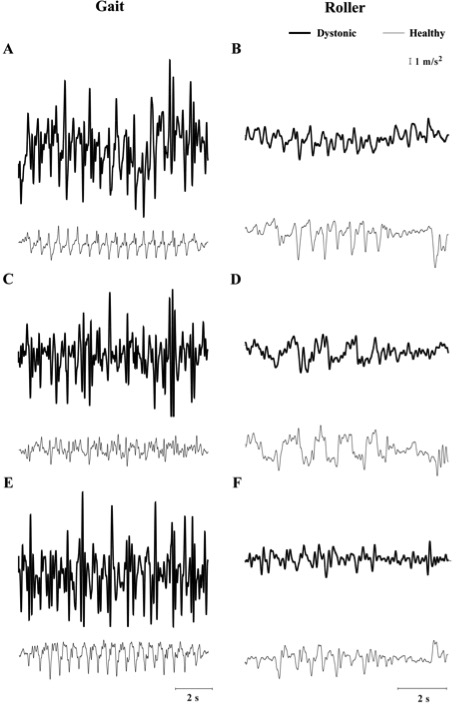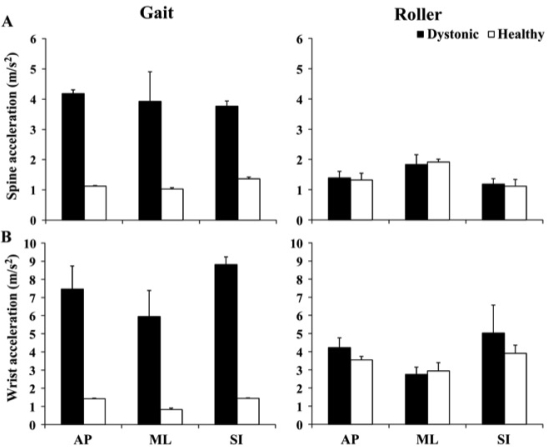Session Information
Date: Wednesday, June 22, 2016
Session Title: Phenomenology and clinical assessment of movement disorders
Session Time: 12:00pm-1:30pm
Location: Exhibit Hall located in Hall B, Level 2
Objective: To describe a young patient with generalized dyskinesia induced by neuroleptic drugs and dramatic improvement of symptoms while skating.
Background: Tardive Dyskinesia (TD) is a potentially disabling adverse effect of antipsychotic treatment with a marked impact on the quality of life, mainly by affecting motor function and gait balance. Studies have shown that physical exercise has beneficial effects on extrapyramidal symptons. Exercises like inline skating require a continual correction of balance to reestablish the center of gravity and could provide external pacing cues that are less prominent during gait. In addition, effects of changing visual scene during skating might better capture the patient’s attention. We can also consider this phenomenon to be similar to a sensory trick and proprioception appears to be a stronger stimulus for this. However, apparently sensory tricks were used only in 4% of those with secondary dystonia and their effects on motor symptoms and gait in TD are poor related. Here, we present a patient with good recovery of motor function after inline skating.
Methods: A 25 y/o woman diagnosed with Bipolar Disorder after a long time treatment with neuroleptics drugs has developed generalized movements and disabling of gait. However when she tried to inline skating the result was a dramatic improvement of her involuntary movements. For the analysis of gait and movements she was assessed with accelerometers on wrists and spine during inline-skating and a 10 meters walking task. All the tests were also performed in her healthy twin sister and the results were compared.
Results:  depicts representative curves of spine acceleration for each participant in anteroposterior (AB), mediolateral (CD) and supero-inferior (EF) directions. The root mean square average of three trials for each condition and each direction of accelerarion is showed in
depicts representative curves of spine acceleration for each participant in anteroposterior (AB), mediolateral (CD) and supero-inferior (EF) directions. The root mean square average of three trials for each condition and each direction of accelerarion is showed in  During gait the patient showed higher values of spine and wrist acceleration compared to her sister. Worth noting is that in roller condition, the patient showed acceleration values similar to her healthy sister.
During gait the patient showed higher values of spine and wrist acceleration compared to her sister. Worth noting is that in roller condition, the patient showed acceleration values similar to her healthy sister.
Conclusions: Our findings may have pathophisiologic and therapeutic importance, with implications for treatment and rehabilitation. Some lines of research may follow from this observation, trying to understand why in generalized diskinesia skating can be preserved better than walking.
To cite this abstract in AMA style:
S.C.B. Casagrande, R.G. Cury, A.C.d.L. Pardini, D.B. Coelho, C.d.O. Souza, T.G. de Oliveira, M.G.d.S. Ghilardi, E.R. Barbosa, E.T. Fonoff. The improvement of a tardive diskinesia movements by inline skating [abstract]. Mov Disord. 2016; 31 (suppl 2). https://www.mdsabstracts.org/abstract/the-improvement-of-a-tardive-diskinesia-movements-by-inline-skating/. Accessed January 30, 2026.« Back to 2016 International Congress
MDS Abstracts - https://www.mdsabstracts.org/abstract/the-improvement-of-a-tardive-diskinesia-movements-by-inline-skating/
